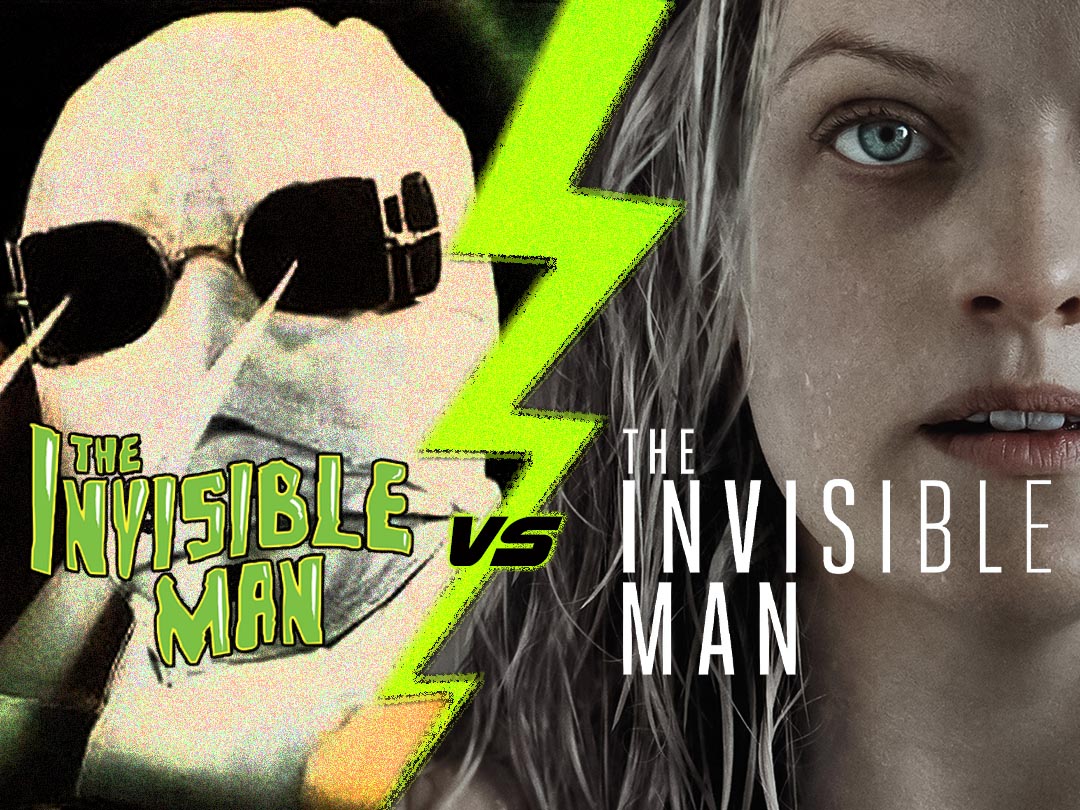
The original The Invisible Man (1933) is one of Universal’s greatest classic monster films—and it still holds up incredibly well today. Directed by James Whale and based on the H.G. Wells novel, it tells the story of scientist Jack Griffin, who discovers the secret to invisibility and descends into madness. What sets this film apart, even after all these years, is how sharply it blends horror, science fiction, and dark humour. Claude Rains, in his first American film role, delivers a brilliant performance—mostly through his voice, as his face is hidden for nearly the entire film. The visual effects were groundbreaking at the time and remain impressive for the era, but it’s the eerie tone, fast pacing, and Griffin’s increasingly unhinged behaviour that really make this film shine. It’s a tight, no-nonsense horror tale with just the right amount of weirdness. A true classic.
Fast forward to 2020, and we get a very different take on The Invisible Man. This version, directed by Leigh Whannell, reimagines the story completely, shifting the focus away from the scientist and instead telling the story from the victim’s perspective. Elisabeth Moss gives a powerful and grounded performance as Cecilia, a woman escaping an abusive relationship—only to find herself haunted by her ex, who may or may not have found a way to become invisible. This version leans more into psychological horror and real-world themes like trauma, gaslighting, and control. It’s smart, intense, and genuinely disturbing in parts.
The remake is very well made and has some strong scenes, especially in how it builds paranoia and suspense. But while it’s an effective thriller, it lacks the iconic flair and twisted charm of the original. Where the 1933 film is bold and madcap, the 2020 version is more grounded and serious. Both work, but in very different ways.
At the end of the day, the remake is a strong modern horror film with a fresh approach—but the original still stands taller as a piece of horror history, packed with character, style, and innovation.
Winner: The Invisible Man (1933)







